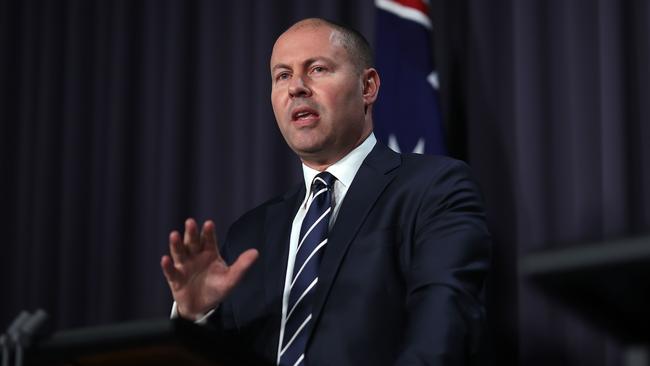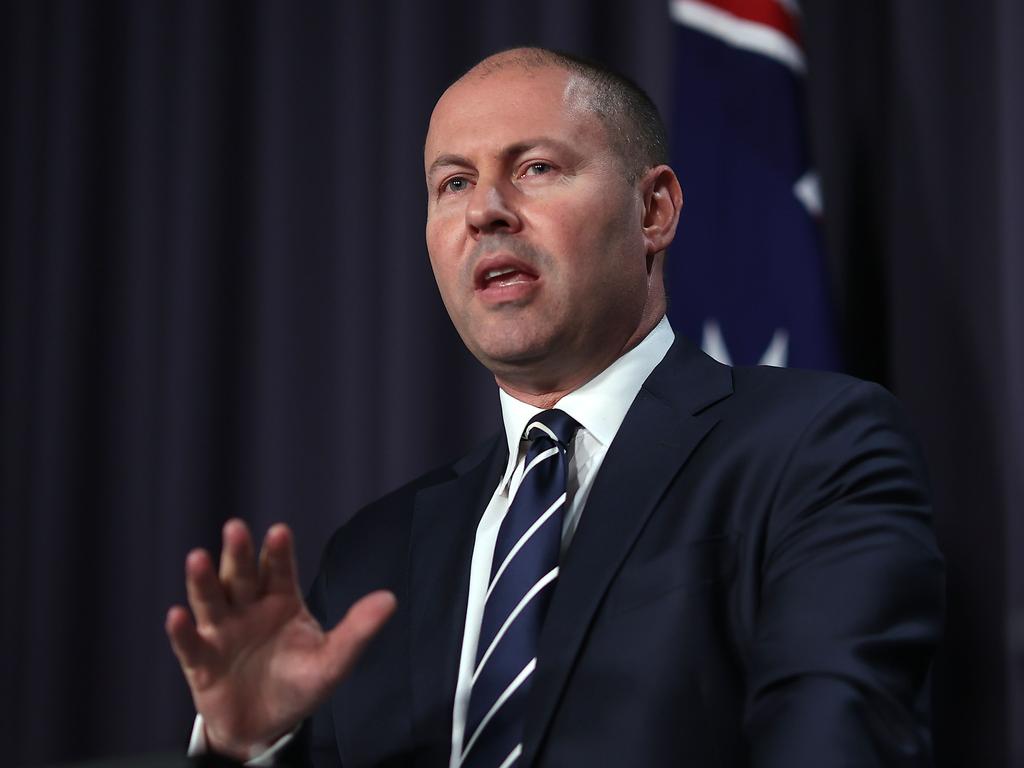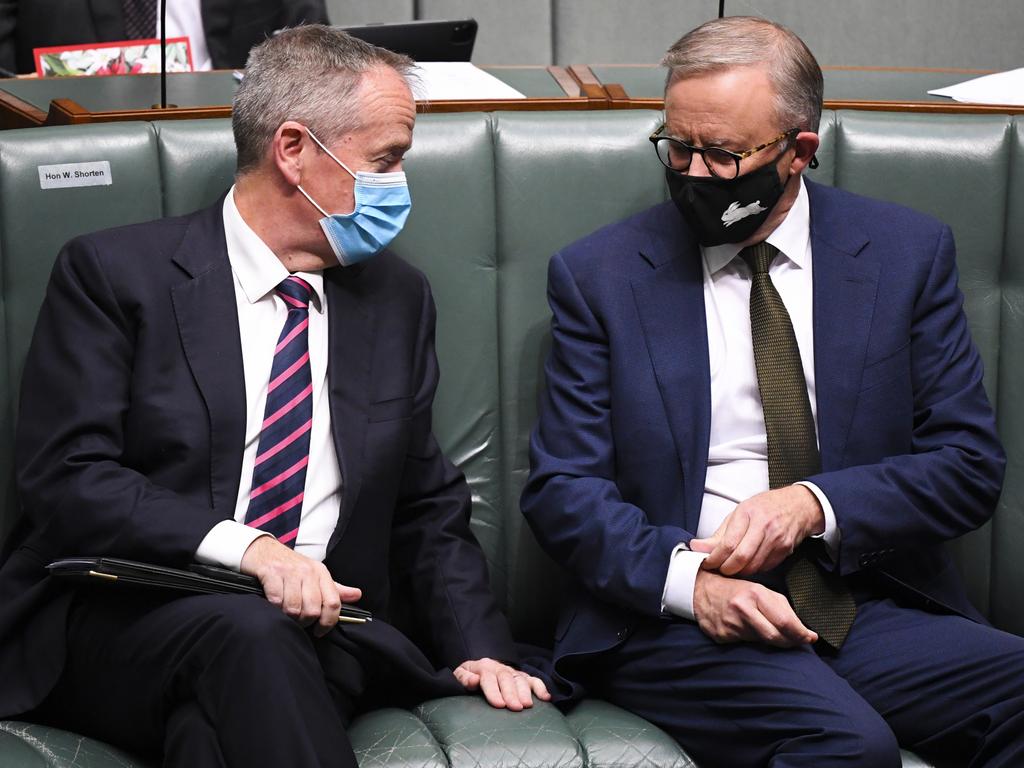
A major challenge for the Liberal Party will be to reassure the public it can manage the economy while driving down expectations of government spending after its generous Covid support measures.
Labor will need to address cost-of-living concerns while signalling to the base its traditional commitment to health and education spending will not be compromised by budget constraints.
If Maslow’s hierarchy was a blueprint for the election campaign, it would look like a story of upstairs, downstairs.
Left-leaning minor parties tend to occupy the upper floors where collars are white, university degrees are standard and egos are fragile.
Right-leaning minor candidates are rousing the troops on the ground floor where politics is viewed as a colossal fight for survival. The major parties are hunkering down on the floors in between. They are locked in a contest to control the narrative on job creation and the economy.
Climate policy will affect the election campaign, but the major parties are focusing on bread-and-butter issues as the government tries to lead the country out of the pandemic.
Amid high case numbers in Victoria and New South Wales, Prime Minister Scott Morrison emphasised the main message of national cabinet’s Covid road map, that restrictions would ease once 80 per cent of people aged 16 had received two vaccinations.
On Saturday, the Health Department reported that 90.3 per cent of Australians had been doubly vaccinated, which is good news for most but gloomy for anti-vax campaigns.
The PM’s approach to Covid has typified his leadership style; slow and steady wins the race. He has reiterated there will be no return to lockdowns because we must “balance saving lives and saving livelihoods”.
Yet a recent survey suggests the government’s optimistic recovery rhetoric could be out of step with the broader public. The November What Worries the World survey, conducted by Ipsos, showed many people are worried about the pandemic. Forty-two per cent of respondents from Australia said they were troubled by Covid, making it the group’s leading concern.
By comparison, 30 per cent were worried about climate change, and 23 per cent about unemployment. The government might need to recalibrate its message given the unwelcome arrival of the Omicron variant.
While preliminary research suggests it could be less likely to produce severe illness than Delta, it is putting pressure on hospital systems overseas. If the same happens in Australia, the exit strategy will boomerang.
In March 2020, the Prime Minister described Covid as an enemy. Speaking to 60 Minutes, he declared “we are in a war against this virus”. Australia had not yet faced the worst of the pandemic.
People were reluctant to adopt the behaviours recommended by health bureaucrats to slow transmission. Face masks, social distancing and washing hands to the tune of happy birthday were considered infantilising.
Curfews were overkill. The “bonk ban” in Victoria was the nanny state on steroids. The virus was a threat to the chronically unfit, the terminally ill and a minority of people with pre-existing health conditions, so why did the majority have to suffer for the few? The utilitarian sentiment was captured in the colloquialism “boomer remover”.
As Covid spread, the spirit of public rebellion grew timid and fearful. Journalists who questioned the wisdom of constraining the economy to slow viral transmission were accused of murder.
The pandemic has transformed the national conversation so radically that the government’s pre-election pledge for a back-in-the-black budget seems quaint. Neither party will pretend the halcyon days are coming back any time soon. The budget forecast has commonwealth gross debt reaching $963bn by June. By June 2025 it will tip over $1 trillion.
No matter how politicians try to spin it, the pandemic has dealt a blow to the Australian economy.
Yet the government’s response to Covid has received international praise. The OECD observed the centrepiece of its fiscal repair program, JobKeeper, had saved 700,000 jobs.
In November, the harvest arrived with a record-breaking monthly increase in jobs.
There were 366,000 jobs added, an extraordinary result that led Treasurer Josh Frydenberg to enthuse: “This result belongs to all Australians who have sacrificed so much over the last two years.”
The last election was a contest over cost of living and the economy. Labor suffered defeat after alienating faith communities, defending an uncosted climate policy and prioritising identity politics over more basic economic concerns.
The Coalition won by leaving the beltway for the burbs to learn what mattered to most Australians. It will be held accountable for its election promises, despite the extraordinary additional burden of navigating through a pandemic.
Did it keep Australians safe? Is the economy stable? Is the environment protected? Will the kids get a good education? Will our elders be safe in aged care? Can we afford a home?
Can we pay down the national debt without drastically reducing our standard of living, or will the cost of necessities skyrocket?
Can we defend ourselves and our values against hostile foreign powers? Are we better prepared for a pandemic today than we were before Covid struck?
Australians want a steady hand on the wheel. The party with a track record of good economic management and a plan to rebuild the foundations of national prosperity will get the job.






Election campaigns are marked by cash splashes, policy on the run and a final sprint to the finishing line. Winner takes all. The coming contest will be more austere. Whichever party wins will inherit debt forecast to surpass $900bn next year.